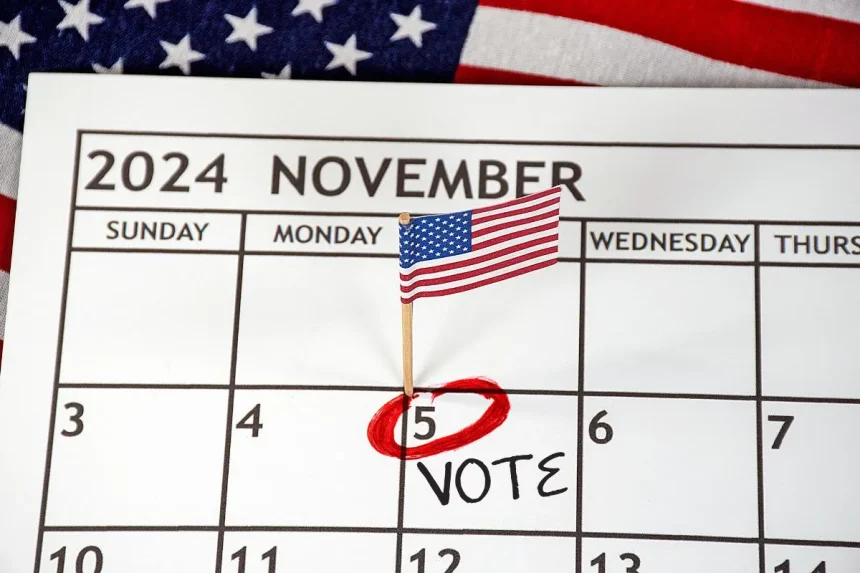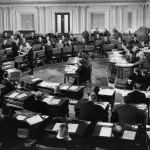As the 2024 U.S. presidential election draws near, political analysts, pollsters, and voters alike are closely watching the evolving landscape. This election cycle promises to be dynamic and pivotal, with numerous factors shaping the race. Here’s a comprehensive look at the key trends and expert insights for the upcoming presidential race.
1. The Political Landscape
The 2024 presidential election is set against a backdrop of significant political and social changes. The aftermath of the 2020 election, ongoing debates over voting rights, and shifting demographics are all influencing the current political climate. With President Joe Biden’s first term nearing its end, the race will be closely watched to see if the incumbent will secure a second term or if a new challenger will emerge victorious.
2. Major Candidates and Their Platforms
Democratic Side:
- Joe Biden: The incumbent president is seeking re-election, emphasizing his administration’s accomplishments in managing the COVID-19 pandemic, economic recovery, and international relations. His campaign will focus on continuity and building on his first term’s achievements.
- Potential Challengers: While President Biden is the front-runner for the Democratic nomination, there may be other contenders from within the party who seek to challenge him. Observers are keeping an eye on figures like Governor Gavin Newsom of California and Senator Elizabeth Warren.
Republican Side:
- Donald Trump: The former president remains a dominant figure within the Republican Party and is a leading candidate for the GOP nomination. His campaign is expected to focus on a strong anti-establishment message, emphasizing issues like immigration, economic policies, and “draining the swamp.”
- Other GOP Candidates: Several notable Republicans are also in the race, including Florida Governor Ron DeSantis, former Vice President Mike Pence, and South Carolina Senator Tim Scott. Each brings their own vision and policies, creating a competitive primary field.
3. Key Issues Shaping the Election
Economic Concerns: Economic issues are likely to be at the forefront of the 2024 election. Voters will be focused on inflation, job creation, and economic growth. Candidates will need to address these concerns and propose viable solutions to appeal to the electorate.
Healthcare: Healthcare remains a critical issue, with ongoing debates over the Affordable Care Act, Medicare, and prescription drug costs. Candidates’ positions on healthcare will play a significant role in shaping voter preferences.
Climate Change and Environment: With growing awareness of climate change, environmental policies are becoming increasingly important. Candidates’ plans for addressing climate change and promoting sustainable practices will be closely scrutinized.
Foreign Policy: The U.S.’s role on the global stage, including its relationships with China, Russia, and its NATO allies, will be a key topic. Voters will be interested in candidates’ strategies for handling international relations and global conflicts.
4. Emerging Trends and Influences
Social Media and Digital Campaigning: Social media continues to be a powerful tool for political campaigning. Candidates are leveraging platforms like Twitter, Facebook, and TikTok to engage with voters, spread their messages, and mobilize support.
Voter Turnout and Engagement: Increasing voter turnout is a major focus for both parties. Efforts to engage younger voters, minorities, and first-time voters will be critical in determining the election’s outcome.
Election Integrity and Voting Laws: Debates over election integrity and changes in voting laws are ongoing. Candidates’ stances on these issues will influence public perception and trust in the electoral process.
5. Expert Insights and Predictions
Political analysts predict a highly competitive race in 2024. Key swing states such as Pennsylvania, Michigan, and Arizona will be crucial in determining the overall outcome. The impact of emerging trends, such as increased voter participation and evolving demographic shifts, will also play a significant role.
Experts suggest that while incumbent advantages often favor the sitting president, the highly polarized political environment and contentious issues could make the 2024 election particularly unpredictable. The strength of each candidate’s ground game, their ability to address key issues, and their effectiveness in mobilizing their base will be crucial factors in the election’s outcome.
Conclusion
The 2024 U.S. presidential election is shaping up to be a significant and closely watched event. With a range of candidates, pressing issues, and evolving political dynamics, the race will be influenced by various factors. As the election approaches, voters and analysts alike will be watching closely to see how the key trends and insights will impact the final results.







